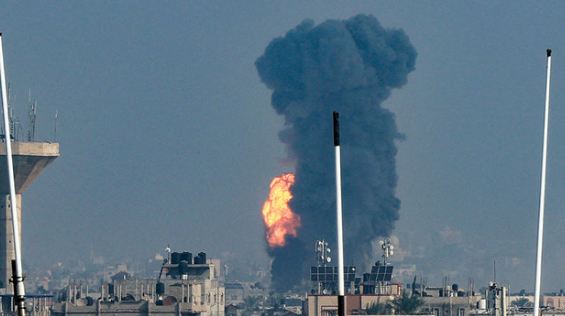The humanitarian crisis in Gaza has reached catastrophic proportions. With thousands of lives lost, basic infrastructure decimated, and an entire population trapped in dire conditions, the world is witnessing one of the most urgent humanitarian emergencies of our time. Yet, the international response, especially from powerful nations like the United States, has been inadequate and, at times, complicit in prolonging the suffering.
The densely populated Gaza Strip, home to over two million people, has long been under siege. But the recent escalation in violence has intensified the suffering to an unprecedented level. Civilians, including children, are paying the heaviest price. Hospitals have run out of medical supplies, clean water is scarce, electricity is sporadic, and food insecurity is growing. Schools, UN shelters, and even ambulances have not been spared from bombardments. The destruction of homes and infrastructure has left hundreds of thousands displaced, with no safe refuge.
This is not just a political or military issue—it is a humanitarian catastrophe. The collective punishment of a civilian population, whether intentional or incidental, is a violation of international humanitarian law. The right to life, shelter, health care, and dignity are fundamental human rights that must be protected, even in times of conflict.
The global response to the crisis has been inconsistent and deeply politicized. While many countries and international organizations have called for ceasefires and humanitarian corridors, the implementation of these measures has been slow and often blocked by political considerations. The United Nations has repeatedly expressed concern, but its resolutions are often stalled or vetoed by powerful member states.
The United States, as one of the most influential global actors and a key ally of Israel, holds a particularly important role. While the U.S. government has occasionally expressed concern over civilian casualties and pledged humanitarian aid, it has continued to provide military and diplomatic support to Israel, without adequate conditions to ensure the protection of civilians. This dual approach undermines its credibility as a proponent of human rights and international law.
If the United States truly wishes to promote peace and stability in the region, it must adopt a more balanced and principled stance. It should use its leverage to demand an immediate and sustained ceasefire, support a robust humanitarian operation, and push for a long-term political solution that guarantees security and dignity for both Palestinians and Israelis. Peace cannot be achieved through force; it requires justice, dialogue, and mutual recognition.
Moreover, the international community must increase pressure for immediate humanitarian access to Gaza. Aid agencies should be allowed to operate freely and safely. Reconstruction efforts must begin, not just to rebuild buildings, but to restore hope, education, and opportunity for a generation scarred by war.
In conclusion, the Gaza humanitarian crisis is a test of global conscience. The suffering of innocent civilians must not be sidelined by geopolitical interests. It is time for the world—and especially powerful nations like the United States—to act with compassion, courage, and commitment to human dignity. History will judge us not by our words, but by our actions.

















